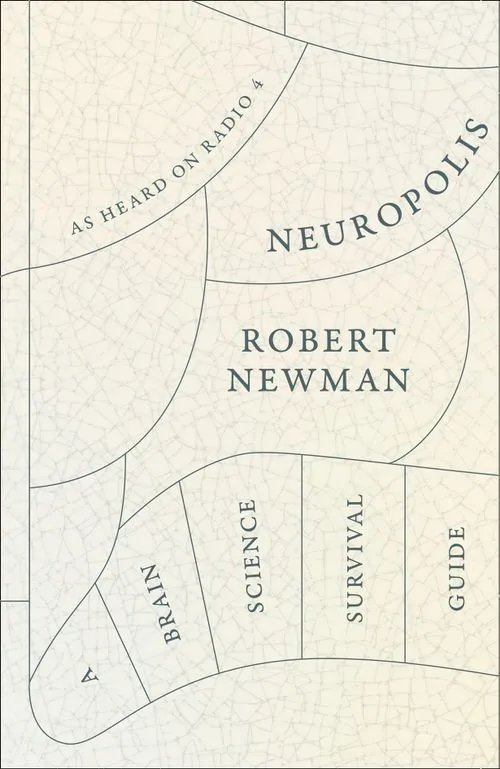Tell us about your new book…
It’s calledNeuropolis: A Brain Science Survival Guideand it’s about the struggle that’s going on in this field between science and ‘magical scientism’ – a sort of pseudoscience.
A lot of international bestsellers aboutthe brainmake claims that are really dehumanising and demoralising. But they’re also funny because of how far behind they leave the science in their mad extrapolations.
How did you get into brain science?
I was looking at a similar thing in my previous bookThe Entirely Accurate Encyclopaedia of Evolutionwhere I thought that evolutionary biology had been hijacked by people making claims that were unsupported by science. So I was already reading around and researching evolution and evolutionary biology, and that kind of lead me into this field.
The book seems to be aimed at a variety of people…
I’ve tried to make it as funny as possible because I’m talking about a very gloomy and pessimistic impression of life which says that everything we experience is an illusion constructed by the brain.
I also brought in plenty of little details and anecdotes from the world of brain science, such as Pavlov’s dogs and the railway worker Phineas Gage, who survived aniron bar passing through his skullin 1848. I’m a bit of a jackdaw really: I like books that are full of lots of little details.
Sigmund Freud even gets a mention…
As far as I know, he was the first to advance the very pessimistic idea that all the great scientific breakthroughs have been a hammer blow to human naivety: heliocentrism, evolution and even his own invention of psychoanalysis.
This inspired the school of thought which says that the hallmark of great science is to make us feel like we’re small, insignificant worms. All I have to do is trash-talk the human race and I’ll be heralded as a great person.
Lots of people we hold up as great scientists have spectacularly nutty views on evolution. Take Freud’s theory of phylogenetic recapitulation, for example, where he believed that every person undergoes every stage of human evolution during their individual development. It’s comedy gold.
And Francis Crick, one of the co-discoverers of the structure ofDNA, proposed the idea of ‘directed panspermia’, where little green men put microorganisms in the nose-cone of a rocket ship and sent it to Earth. We shouldn’t hold people up as sacred cows when they say stupid things.
Do you think we’ll ever completely understand the brain?
No, I think it will remain an enigma. There’s no reason for us to evolve to understand everything; there’s no selective pressure for us to understand more than a fraction of things. We just take a few scrapings from the belly of the whale as it passes over us, and that’s about as close as we’ll get.
What’s the most surprising thing you learnt?
The fact that under normal conditions, the brain is the only organ that has a 100 per cent glucose diet, and that it seems we have microscopic metallic nanoparticles in our heads. Also, the brain is more active when you’re asleep than when you’re awake! It’s really not very streamlined in how it operates.
Where do you stand on the need for popular science?
People are naturally very curious creatures and it’s been great in the last few decades to see a lot of what was once arcane science become more mainstream. People know about ppm [parts per million] of atmospheric gases, for example, and science has become much more at the heart of the debate, which is where it should always be.
You’ve beencited in a scientific paper – can you tell us more about that?
It was in an article called “Defining the Anthropocene” which was the front cover ofNaturein March 2015, and it’s a very small credit in the thanks and acknowledgement section. I was one of several people they gave it to pre-publication to make comments, and I have a framed copy of it here [at my home]. No one else has asked for my help since!
What other fields outside of brain science are you interested in?
Well, I’ve just pitched a new project based on philosophy, mainly philosophy of science. It’s such a broad field that I’d happily stay there for a while.
I always thoughtStephen Jay Gouldhad the best job in the world, writing about natural history as a columnist for about 30 years. To be able to research and write about natural history forever, what a gig. What a great gig!
The nameNeuropolis, where did that come from?
It might have been from watchingZootropoliswith my daughter!
The title references the grandiosity of a lot of visions of the future that you get in brain science books, and also this idea that we’re going to remake society like the 1950s and 60s sci-fi films suggest.
I was going to call itBrainedorBrainwreck, but I thought they might be a little too gory. But the title may just have come fromZootropolis!
Finally, what did you make ofZootropolis, good or bad?
Very, very good film. It’s a critique of biological determinism, and I heartily recommend it!
You can listen to Robert’s radio series of the same namehere.

Follow Science Focus onTwitter,Facebook, Instagramand Flipboard
